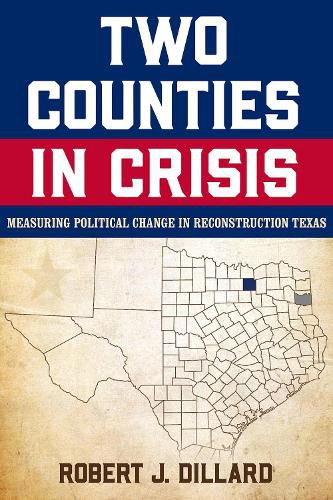Readings Newsletter
Become a Readings Member to make your shopping experience even easier.
Sign in or sign up for free!
You’re not far away from qualifying for FREE standard shipping within Australia
You’ve qualified for FREE standard shipping within Australia
The cart is loading…






Two Counties in Crisis offers a rare opportunity to observe how local political cultures are transformed by state and national events. Utilizing an interdisciplinary fusion of history and political science, Robert J. Dillard analyzes two disparate Texas counties-traditionalist Harrison County and individualist Collin County-and examines four Reconstruction governors (Hamilton, Throckmorton, Pease, Davis) to aid the narrative and provide additional cultural context.
Commercially prosperous and built on slave labor in the mold of Deep South plantation culture, East Texas's Harrison County strongly supported secession in 1861. West Texas's Collin County, characterized by individual and family farms with a limited slave population, favored the Union. During Reconstruction, Collin County became increasingly conservative and eventually bore a great resemblance to Harrison County. By 1876 and the ratification of the regressive Texas Constitution, Collin County had become firmly resistant to all aspects of Reconstruction.
$9.00 standard shipping within Australia
FREE standard shipping within Australia for orders over $100.00
Express & International shipping calculated at checkout
Two Counties in Crisis offers a rare opportunity to observe how local political cultures are transformed by state and national events. Utilizing an interdisciplinary fusion of history and political science, Robert J. Dillard analyzes two disparate Texas counties-traditionalist Harrison County and individualist Collin County-and examines four Reconstruction governors (Hamilton, Throckmorton, Pease, Davis) to aid the narrative and provide additional cultural context.
Commercially prosperous and built on slave labor in the mold of Deep South plantation culture, East Texas's Harrison County strongly supported secession in 1861. West Texas's Collin County, characterized by individual and family farms with a limited slave population, favored the Union. During Reconstruction, Collin County became increasingly conservative and eventually bore a great resemblance to Harrison County. By 1876 and the ratification of the regressive Texas Constitution, Collin County had become firmly resistant to all aspects of Reconstruction.